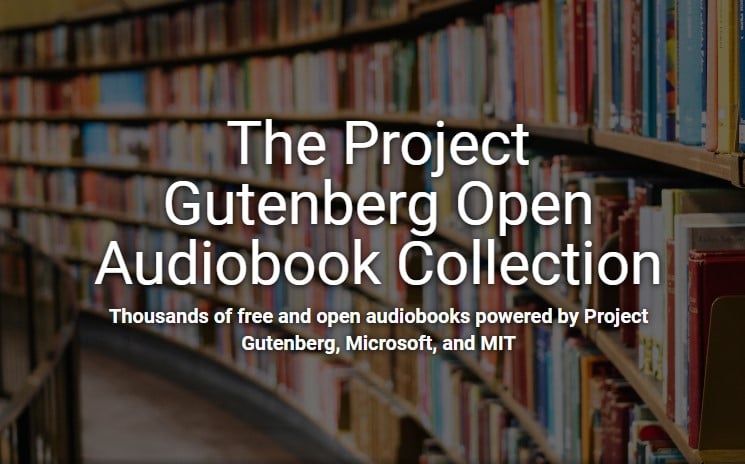With AI, artificial voices for book reading are getting better.
People who struggled with electronic voices in the past, may find themselves pleasantly surprised as AI-voices develop more natural voice pauses and even emotional tones that make listening more enjoyable and easier to keep in mind.
The latest addition to free AI-read audiobooks include thousands of books in Project Gutenberg’s Open Audiobook Collection thanks to Project Gutenberg, Microsoft, and MIT.
You can listen to the books on Spotify, Apple Podcasts, and Google Podcasts.
If you’re new to electronic voices, check these out – they’re quite good.
One of the benefits of getting used to these voices is that they’re very predictable once you get used to them (compared to human readers) and then it may be easier to “speed listen.” In fact, if you find it a little hard listening to an e-book at regular speed, try increasing the speed (1.2 or 1.5) to see if that makes it easier to follow.
Once trained, many people tell us they can listen much faster than reading the regular way – and this speed listening may even be faster than non-dyslexics who read quickly.
The Gutenberg books are classic books in the public domain (for more current books and bestsellers, look into Bookshare.org which is free for all US students and affordable for others.
Students having to read Pride and Prejudice or Dickens for school might find this open audiobook collection much better than trying to read visually. Of course there are also audiobooks available through the public library app Libby.
Another handy resources for e-readers is Speechify.
Free Speechify comes with 10 standard voices and 1x speed. If you purchase a yearly subscription at the link, you have access to some fantastic custom voices that can read those long emails, proofread your written work, and read your text books. You can also increase your listening speed to 4.5x! It can sync across your devices. Some college students like it because its ease of use for any print material. When a school is also slow to provide audio versions of assigned texts, the app can provide accessibility. Speechify will also translate into many languages.
Children, individuals for whom English is a second language, and those with auditory processing challenges may have trouble with extended listening to books, but it is possible to train into it.
Do try a wide range of voices to see which voices are the easiest to listen to.
Surprisingly, we knew quite a number of children who said they liked the option of listening to a British or Australian voice, even though they had lived all their lives in the US.
Another excellent e-book reader for the phone, is Voice Dream Reader.
It doesn’t have all the Hollywood voices that Speechify does, but it does have rapid listening and great synchronization over multiple devices. It was purchased by another company and now is a subscription app rather than 1x only, but if you’ve grandfathered in, to the 1x only app, you’re in luck!















